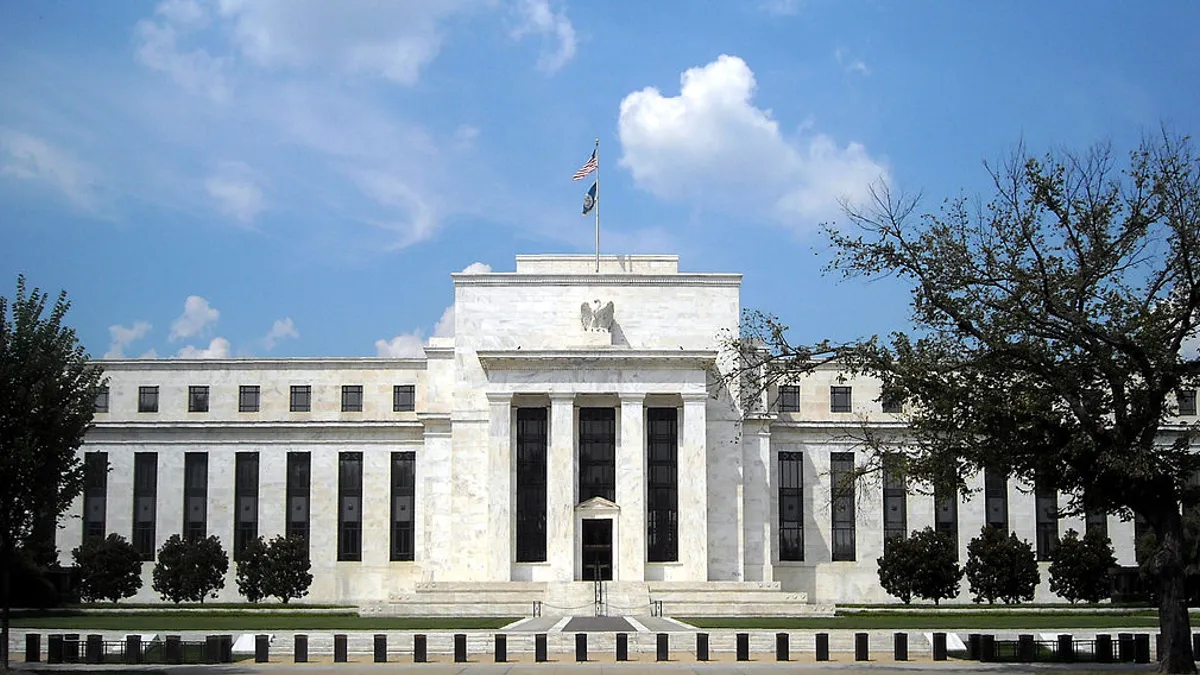Dive Brief:
- The Federal Reserve signed off on the rewrite of the Volcker Rule, the central bank announced Tuesday in a press release. That makes it the last of the five agencies whose approval was needed on changes to clarify trading restrictions for banks.
- The final rule, which goes into effect Jan. 1 with a compliance date a year later, retains a ban on proprietary trading and scraps the "accounting prong" test, which regulators proposed last year to clear up ambiguity regarding short-term trades. "With the changes, the agencies expect that the universe of trades that are considered prohibited proprietary trading will remain generally the same as under the agencies' 2013 rule," the Fed wrote Tuesday.
- Gov. Lael Brainard dissented from the Federal Reserve Board's vote, saying in a statement that the rewrite would "excessively rely on firms' self-policing."
Dive Insight:
The Fed's approval comes a month and a half after the Federal Deposit Insurance Corp. (FDIC) and Office of the Comptroller of the Currency (OCC) approved the rewrite. The Securities and Exchange Commission (SEC) and Commodity Futures Trading Commission (CFTC) have also approved the final rule.
In its statement, the central bank said the final rule provides "greater clarity and certainty for activities allowed under the law."
In a potential surprise, the rewrite eliminates a "short-term intent" test, a development Brainard said was not included in the notice of proposed rulemaking. "By eliminating the standalone 'short-term intent' test for firms engaged in higher levels of trading activities, the final rule materially narrows the scope of covered activities," she wrote, adding that the revised rule, in sum, "weakens the core protections against speculative trading within the banking federal safety net."
Brainard is not the rule's only high-profile dissenter. Former FDIC Chairman Martin Gruenberg, who now sits on that regulator's board, voted against the rewrite in August, saying it "will no longer impose a meaningful constraint on speculative, proprietary trading."
And Paul Volcker, the former Fed chair for whom the rule is named, lambasted the simplified regulation in a letter last month to current Fed chief Jerome Powell.














